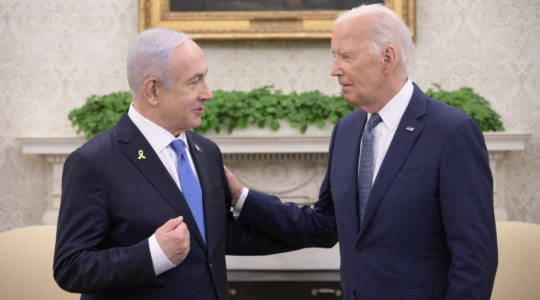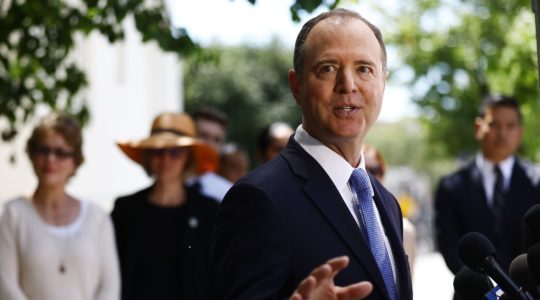LOS ANGELES (JTA) – Some 700 years after the Inquisition was established by the Roman Catholic Church, Pope John Paul II decreed in 1998 that its massive secret archives be opened for scholarly research. The announcement piqued the interest of Seattle-based filmmaker David Rabinovitch. He started the long road of recreating the history of the Holy Office of the Inquisition, from its beginning in the early 13th century to its final gasps in the late 19th century. The result is the four-hour miniseries “Secret Files of the Inquisition,” which PBS stations will air 9-11 p.m. May 9 and 16. Filmed mainly at the medieval castles, cathedrals and villages of Spain, “Secrets” presents a broad visual and historic panorama of its subject. One of the first calls Rabinovitch made after conceiving the docudrama was to an old friend and high-ranking Catholic dignitary in San Francisco. How would Catholics in general, and the Vatican in particular, feel about the grandson of Russian Jewish immigrants making a probing film about the Church’s questionable past, he asked. “I know your ability and your integrity,” the dignitary answered. “Go for it.” It is commonly assumed that Jews were the chief target of the Church’s quest for theological uniformity and purity, but generally that was not the case. The first victims were Catholic dissidents, such as the Cathars of southern France, whose fate is chronicled in the first of the film’s four chapters, titled “Root Out Heretics.” The itinerant preachers of Catharism, known as “The Good Men,” believed that man had a direct relationship to God and did not need the intercession of priests and popes to achieve salvation. Dominican friars, charged by Pope Gregory IX with rooting out this heresy, did their job well, even imprisoning the entire population of Montaillou, the Cathars’ last stronghold. In “The Tears of Spain,” the second segment, Rabinovitch retraces the more familiar story of the brutal Spanish Inquisition, which introduced such refinements as the auto-da-fe, the public burning of heretics at the stake. The chief targets were not Jewish “infidels” but “conversos,” who had nominally converted to Christianity but secretly retained their Jewish faith. The Spanish Inquisition climaxed, but did not end, with Inquisitor Tomas de Torquemada’s own final solution, the expulsion of all Jews from Spain in 1492.With “The War of Ideas” the story moves to the 16th century when, with the arrival of the Renaissance, printing press and Lutheranism, the decadent papal court faced a new set of ideological problems. Despite these preoccupations, Pope Paul IV found time to withdraw the papal bulls issued by his predecessors protecting the Jews of Venice and Rome. He confined them in crowded ghettos, forced them to wear yellow conical hats and burned the Talmud. The lingering “End of the Inquisition” came with Napoleon’s conquest of Europe. By 1809 the French emperor had largely taken away the pope’s temporal power. After Napoleon’s defeat, the Inquisition made a short-lived comeback. One of its last gasps was the notorious case of Edgardo Mortara, a Jewish boy in Bologna who was kidnapped and hidden by Church authorities because he had been “baptized” as an infant by his Catholic nursemaid. Rabinovitch, who has won numerous Peabody and Emmy awards, spent approximately three years on the wide-ranging, richly texured project, employing 40 actors with principal roles and 600 extras – all on a budget of less than $3 million. The film combines lengthy extracts from the Inquisition files of some 85,000 minutely recorded trials and dramatic re-enactments of incidents with analyses by experts, impressive high-definition photography, music and narration by actor Colm Feore. One of the talking heads is the Rev. Joseph Di Noia, a high-ranking, New York-born theologian at the Vatican who functions as a kind of defense attorney for the Church. Unfortunately, from a dramatic point of view he is a pale figure, repeating often that the Inquisition’s viewpoint and methods must be judged in the context of their time. His point is valid but his delivery offers little emphasis or conviction.

Help ensure Jewish news remains accessible to all. Your donation to the Jewish Telegraphic Agency powers the trusted journalism that has connected Jewish communities worldwide for more than 100 years. With your help, JTA can continue to deliver vital news and insights. Donate today.





